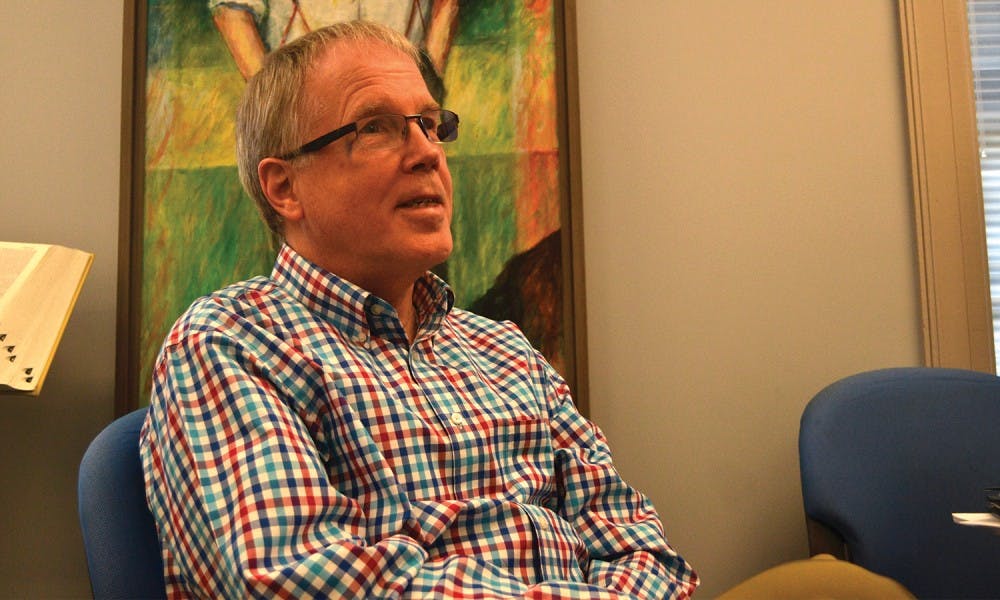“It’s kind of hard to do that imagining when you work on the assumption, ‘well, the world we live in now, that’s just the way it is, right?’ No. People make history. People make choices,” he said.
“We might look back at some of those moments of choice and go down some of those possibly avenues and say ‘oh my goodness, I’m so glad we didn’t go there.’ Down others, you may say ‘oh wow, I never knew that that had been a possibility.’”
Leloudis recently served as an expert witness for the NAACP’s lawsuit against the state of North Carolina concerning its voter ID law, and he’s a member of the UNC history task force created by Chancellor Carol Folt.
History professor Ken Zogry has worked with Leloudis for nearly 20 years. Zogry said along with being one of the most knowledgeable University historians, Leloudis is a passionate educator and active administrator at the Johnston Center for Undergraduate Excellence.
“He’s part of the soil,” Zogry said. “There are few people embedded in the University in all senses as much as he is.”
Zogry said one of the reasons why Leloudis is a great historian is that he doesn’t only write about dead white men.
“He’s a very strong writer and he’s able to write in a way that is accessible to everyone. Some historians write basically for other historians. Jim came of age when the teaching of history in this country was changing,” Zogry said. “It was something called the New Social History, which in part grew out of the social turmoil and changes in the 1960s.”
“With the whole change, it affected the way that people looked at history. We started to look at the lives of everyone.”
Brandon Winford, a former doctoral student of Leloudis and now a professor at the University of Tennessee-Knoxville, said Leloudis helped him navigate graduate school and succeed in his research.
“In moments where I felt like I didn’t have a clue what I was doing, he was really, really good at calming my anxieties as a student,” Winford said. “To me, he was a really good professional mentor ... someone who sort of modeled excellence in terms of his teaching.”
Winford said Leloudis’ research is more than just words on a page.
“He also cares about North Carolina — seeing a better society that values everyone and understands everyone’s unique perspectives and understanding the fact that everyone should have the fundamental rights of citizenship,” he said.
To get the day's news and headlines in your inbox each morning, sign up for our email newsletters.
“I think that’s at the heart of him as a teacher, and a researcher, a mentor, an advisor.”
Leloudis said UNC historically was a space in which professors and students raised difficult questions about society.
“I don’t mean to get misty-eyed and see the world through rose-tinted glasses, but people were asking hard questions, particularly about the racial order here — questions that weren’t getting an airing in many other institutions in the region,” he said.
For Leloudis, that tradition continues.
“The whole controversy over Saunders Hall, now Carolina Hall, made me very proud of this institution. It made me very proud of the students here who agitated around that issue and were insistent that we confront it.”
university@dailytarheel.com




